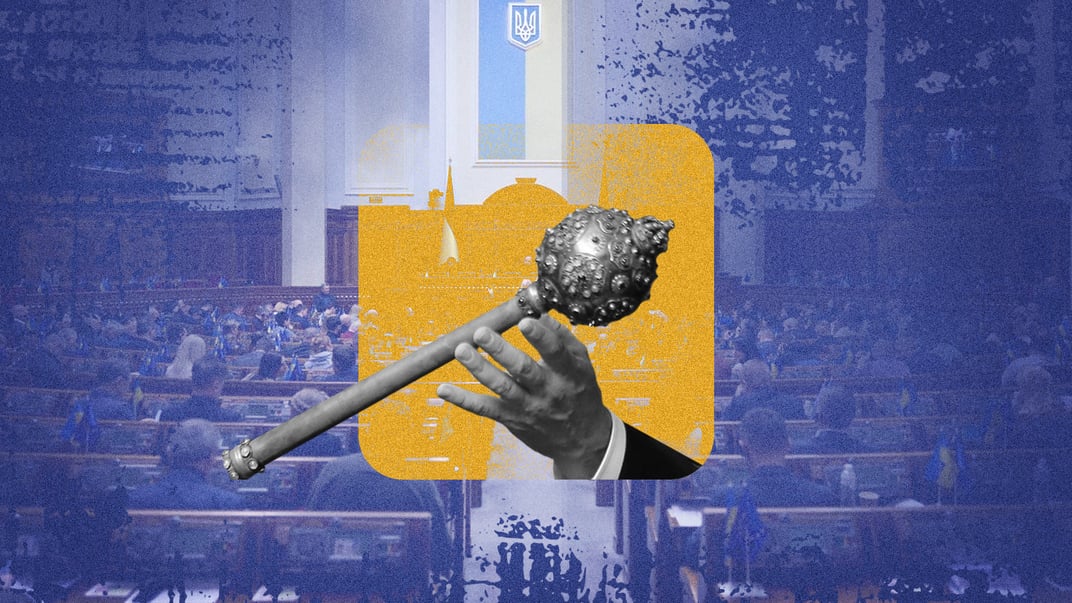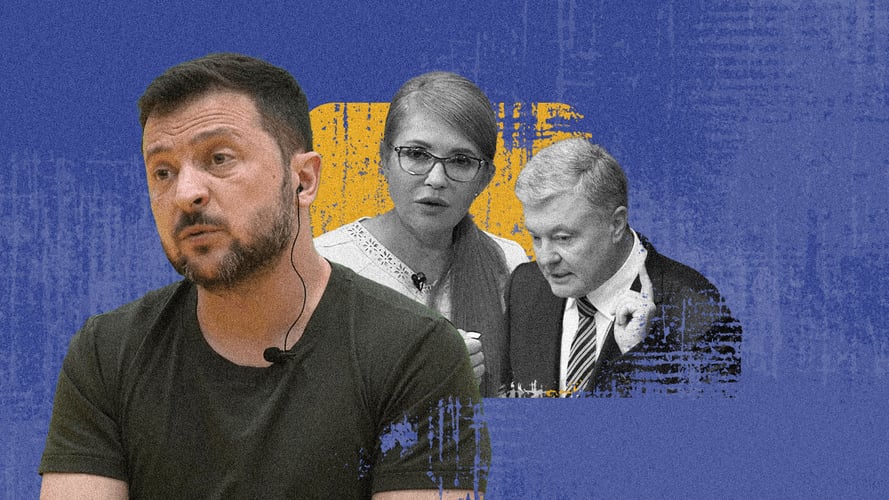Is power centralized? Does Ukraine need a national unity government, and how has this worked in other countries?

Crises of Trust in Political Parties
KMIS surprised with the results of its survey in October 2024: 50% of Ukrainians have a positive perception of the idea of establishing a National Unity Government. Only 13% expressed negative sentiments towards it. The situation is quite similar across all regions of Ukraine, and the respondents' views on President Volodymyr Zelensky had little impact on the results.
A National Unity Government is a type of coalition government formed temporarily during national crises, such as wars or political instability. The main concept behind such a government is to unite representatives from various political parties and groups, including supporters of both the government and the opposition, to collaboratively address the crisis.
This is not the first survey by KMIS regarding the National Unity Government. At the end of 2023, only 37% of respondents expressed positive views on a similar question, while 19% were negative.
So, have societal sentiments changed dramatically over the year? Not quite. Between the two KMIS surveys, there was one seemingly insignificant, yet as it turned out, important distinction—the wording of the question.
Back then, Ukrainians were asked about their attitude towards such a government, specifically mentioning that it would include a coalition of “Servant of the People,” “European Solidarity,” “Fatherland,” and “Voice.” This time, the focus was on a “broad unification of all patriotic” forces in and out of parliament (political parties, civic organizations, movements, etc.).
The problem is that there is currently a low level of trust in all traditional parties... When [Ukrainians] see these four political forces, the idea itself does not evoke strong enthusiasm. People do not see what will change: what difference does it make if parties we do not like unite? When we talk about non-parliamentary forces now, it resonates more with the population.Anton Grushetsky, Executive Director of the Kyiv International Institute of Sociology
Grushetsky noted to hromadske that the idea of creating a National Unity Government resonates with the public, but he suggests that if sociologists were to delve deeper into their questions—say, having 10-15 separate questions about how this coalition would look, how decisions would be made, who would be part of this unification—the percentage of support for the concept would be lower.
“I think the question was formulated quite abstractly. The fact that 50% supported it is just 'for all that is good and against all that is bad.' In principle, normal people understand that unity is necessary during wartime... The idea is correct, but the question is: how to ensure it?” — said hromadske political analyst Volodymyr Fesenko.
One of the main questions that, according to Fesenko and Grushetsky, Ukrainians currently have no answer to is who should lead the National Unity Government. Various surveys regarding citizens' attitudes towards specific politicians show significant distrust towards all of them. Valerii Zaluzhnyi's work was highly regarded, but he did not express a desire to hold a political position. Leading the government requires a deep understanding of economic processes, so this role should be filled by an experienced specialist.
This idea (to create a National Unity Government) is viewed abstractly, and when it comes to defining who should head this government, there is no answer. People do not see a figure that would unite this government.Volodymyr Fesenko, political analyst, Director of the Political Studies Center “Penta”
Lessons from the Past
Regarding the National Unity Government, international experience is quite telling. Such governments have been formed in countries that recognized they were facing an existential crisis. They typically emerged during wartime. International expert Ihor Reiterovich provided hromadske with two examples of National Unity Governments: one historical and one contemporary.
The historical example is the government of the United Kingdom during World War II. Opposition representatives held key positions. For context, Clement Attlee, who was responsible for foreign policy in Winston Churchill's government, later defeated him in elections.
They considered two aspects: professionalism, ensuring that people were suited to the positions they were offered, and, of course, societal consolidation. This was a demonstration that there is only one enemy—an external one—and any political and internal disagreements are unimportant and should only be addressed once the war is over.Ihor Reiterovich, political analyst, Head of Political and Legal Programs at the “Ukrainian Center for Public Development”
The National Unity Government in the UK fulfilled its mission. After the war with Germany, the country held elections and returned to domestic politics.
The contemporary example is Israel, where a National Unity Government was established in 2023 amid a standoff with militants from HAMAS. There was no time to search for experienced professional politicians among the ruling party's supporters. Therefore, opposition representatives—former members of the government—were included in the unity government to enhance coordination and facilitate quick and professional decision-making.
“The activities of the National Unity Government, at least in the first year, were positively perceived by Israelis. The results were visible. Politicians did not quarrel or criticize each other; they focused on national security issues,” noted Ihor Reiterovich.
The mentioned countries are not the only ones with experience in National Unity Governments. Typically, countries at war establish such governments to minimize internal political contradictions and not ignore the opposition, but rather to engage it in resolving various issues. This enhances the overall legitimacy of all decisions made and reduces tension within the country.
Ukraine, in this regard, is probably an exception. Because, unfortunately, our conditional National Unity Parliament only existed, let's say, during the first year of the war. After that, the situation changed. And regarding the government, the situation was initially as it is now.Ihor Reiterovich, political analyst, Head of Political and Legal Programs at the “Ukrainian Center for Public Development”
No Compromises in Sight
Exactly one month before the full-scale invasion, “Fatherland” officially appealed to President Volodymyr Zelensky with a proposal to “set aside all political ambitions and create a National Unity Government.” They promised to provide a step-by-step program on how to lead the country out of the crisis and protect people on socio-economic issues. There was no response from the President's Office.
In May 2023, Petro Poroshenko publicly called for the establishment of a National Unity Government, which would become a “government of national salvation.” He criticized the authorities for problems with the construction of fortifications and support for the Armed Forces, expressing readiness to help “preserve the state of Ukraine.” There was no response from the President's Office.
There is still no response from Bankova regarding hromadske's request for a comment. President Volodymyr Zelensky and his Office avoid this topic, even though they understand the importance of unity during wartime. After all, while presenting his Plan for Victory in parliament in mid-October, the head of state emphasized: “We have achieved and are achieving results in battles thanks to our unity. So please, let’s not lose our unity; let’s work together for Ukraine.”
If the opposition is noticeably ignored by Zelensky, he has finally turned his attention to forces outside parliament. On October 23, the head of state met with representatives of Ukrainian civil society engaged in foreign policy issues, defense sector development, and freedom protection.
Co-founder of the civil platform “New Country,” Valeriy Pekar, who was present at the meeting, suggested that this was likely the first meeting of the president with civil society, at least since the onset of the full-scale war. They discussed issues related to the external and internal Plan for Victory.
“The main message we tried to convey to the president (and I think we succeeded): victory belongs to all, and so does defeat; therefore, civil society is not an opponent but a partner in achieving victory,” noted Pekar.

Not the Time for Experiments
The Ukrainian model of a National Unity Government could look like this. Representatives of the current Cabinet resign. An official coalition is formed in parliament consisting of the largest pro-Ukrainian factions and groups. They create a new government that includes, among others, representatives of the opposition. If those opposition representatives in a unity government are serving members of parliament, they would relinquish their parliamentary mandates.
How could this, hypothetically, look in our realities? Volodymyr Zelensky as president, Petro Poroshenko as head of the Verkhovna Rada, Yulia Tymoshenko as the first deputy prime minister in such